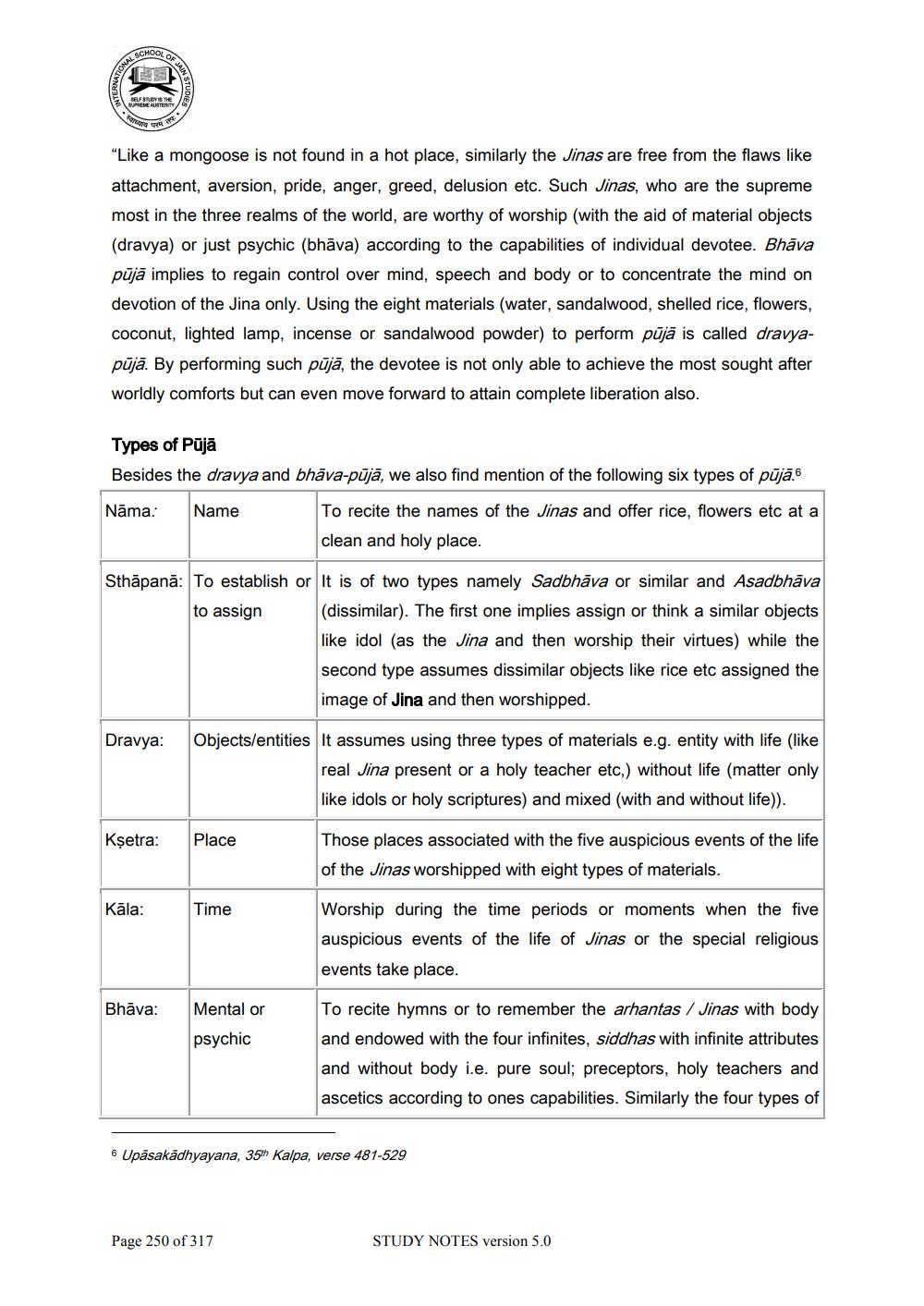________________
"Like a mongoose is not found in a hot place, similarly the Jinas are free from the flaws like attachment, aversion, pride, anger, greed, delusion etc. Such Jinas, who are the supreme most in the three realms of the world, are worthy of worship (with the aid of material objects (dravya) or just psychic (bhāva) according to the capabilities of individual devotee. Bhāva pūjā implies to regain control over mind, speech and body or to concentrate the mind on devotion of the Jina only. Using the eight materials (water, sandalwood, shelled rice, flowers, coconut, lighted lamp, incense or sandalwood powder) to perform pūjā is called dravyapūjā. By performing such pūjā, the devotee is not only able to achieve the most sought after worldly comforts but can even move forward to attain complete liberation also.
Types of Pujā Besides the dravya and bhāva-pujā, we also find mention of the following six types of pūjā.6
Nāma:
Name
To recite the names of the Jinas and offer rice, flowers etc at a clean and holy place.
Sthāpanā: To establish or It is of two types namely Sadbhāva or similar and Asadbhāva to assign (dissimilar). The first one implies assign or think a similar objects
like idol (as the Jina and then worship their virtues) while the second type assumes dissimilar objects like rice etc assigned the image of Jina and then worshipped.
Dravya:
Objects/entities It assumes using three types of materials e.g. entity with life (like
real Jina present or a holy teacher etc,) without life (matter only like idols or holy scriptures) and mixed (with and without life)).
Kşetra:
Place
Those places associated with the five auspicious events of the life of the Jinas worshipped with eight types of materials.
Kāla:
Time
Worship during the time periods or moments when the five auspicious events of the life of Jinas or the special religious events take place.
Bhāva:
Mental or psychic
To recite hymns or to remember the arhantas / Jinas with body and endowed with the four infinites, siddhas with infinite attributes and without body i.e. pure soul; preceptors, holy teachers and ascetics according to ones capabilities. Similarly the four types of
6 Upasakādhyayana, 35h Kalpa, verse 481-529
Page 250 of 317
STUDY NOTES version 5.0




